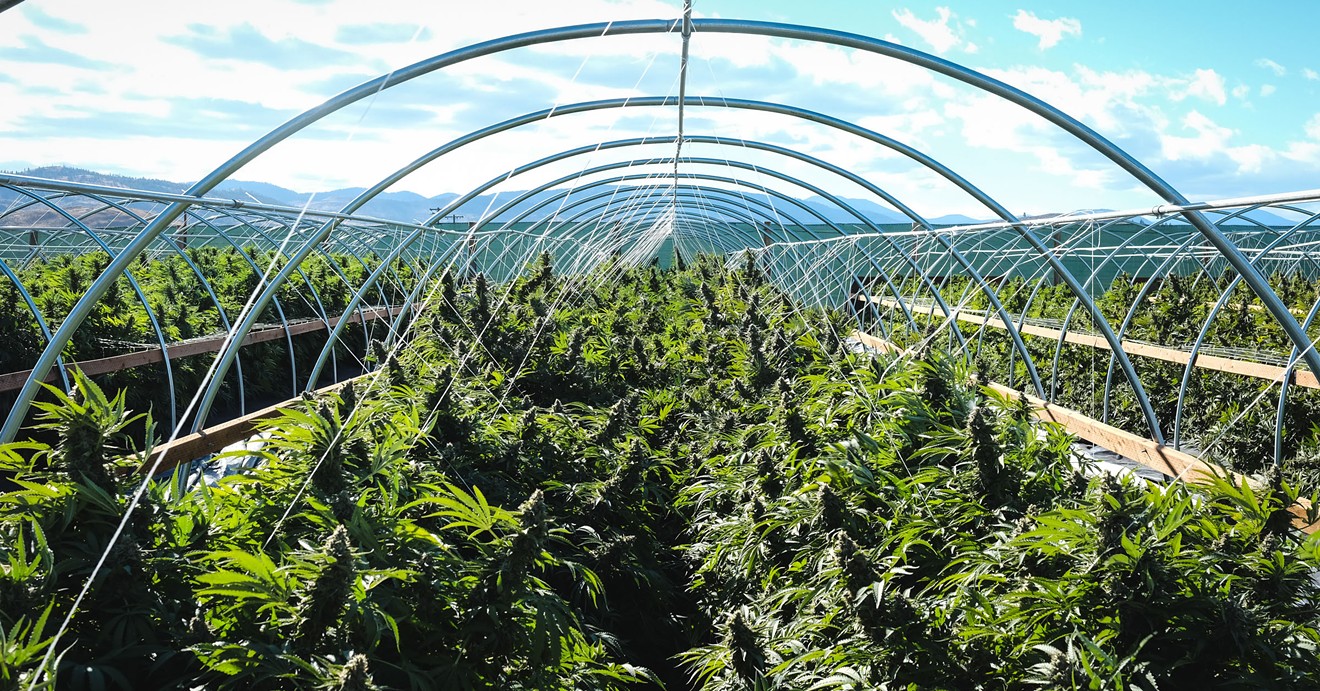The free Arizona Opioid Assistance and Referral Line is set to go live in a few days. It will be "one of the nation's first real-time, comprehensive hotlines for healthcare providers seeking consultation for complex patients with pain and opioid use disorder," according to a state news release.
But one treatment option the health care providers and patients won't hear about on the hotline is medical marijuana.
"It's not part of the protocol," said Dr. Dan Brooks, medical director for the Banner Poison and Drug Information Centers. "We don't have any initial plans to talk about marijuana" as a treatment option.
The hotline is viewed as one possible piece to solving a crisis that has caused bodies to pile up at morgues around the country. More people than ever are dying from the abuse of heroin, pills like OxyContin, or synthetic opioids like fentanyl. Arizona alone had 942 suspected opioid deaths from June 15 to February 22, according to the state's Opioid Epidemic web page.
"Preventing opioid overdoses and deaths in our state needs a multifaceted approach, and the new hotline is a major step forward as it will give medical providers immediate access to experts who can help to ensure safe prescribing and to identify treatment options for patients, which may or may not include opioids," Dr. Cara Christ, director of the Arizona Department of Health Services, says in the release.
"No two patients are the same and treatments vary based on individual needs, so we need to make sure we are providing tailored resources to our medical community."
The state DHS and Poison and Drug Information Centers plan to create new advice for health care providers. Recommendations will include "specific opioid-related information for providers, such as safe prescribing limits for opioid-naive patients, identification of potentially dangerous drug combinations, and chronic pain treatment options," the release says.
For some patients, the hotline experts may advise the use of drugs like methadone or Vivitrol but not marijuana
Not that the nurses, doctors, and pharmacists who answer the 24-hour hotline won't talk about cannabis at all.
"If they have questions about marijuana, we'll answer questions," Brooks said."I don't know anyone who's advising marijuana as an alternative."
Yet cannabis, some experts point out, has been effective in treating pain, and could be considered an advisable substitute for opiates.
Studies show that states with medical-marijuana and adult-use legalization laws have seen sharp drop-offs in their opiate overdose deaths. (None of the studies have so far included a look at Arizona's statistics, it seems.)
Will Humble, former state DHS director and executive director of the Arizona Public Health Association, stopped short of saying the hotline should recommend cannabis as a specific treatment option for specific patients. But clearly, he said, the staff should talk about its potential benefits as an opiate alternative.
"The National Academy of Sciences did a rigorous scientific literature review in 2017 and concluded that cannabis has a therapeutic role in treating chronic pain in adults," Humble said.
"But like all medications, it's not risk-free," he added. "So it stands to reason that the folks answering the hotline will be relaying that information to callers, not as a treatment recommendation for individual patients but as information for physicians to consider as they evaluate alternatives to opioids for patients with chronic pain."
However, at least one opiate treatment center in metro Phoenix offers a program to wean opiate users off of their medications with the help of cannabis.
Blue Door Therapeutics in Scottsdale offers a regimen for certain patients that includes ingesting varying amounts of cannabis with both the psychoactive compound THC and the non-psychoactive cannabidiol (CBD).
Under a doctor's supervision, the patients take small amounts of cannabis by vaping, swallowing capsules, applying sublingual sprays, or using suppositories.
Cannabis helps people deal with insomnia or other withdrawal symptoms, and helps with whatever chronic pain that may have caused a patient to take opiates in the first place, said Dr. Gina Berman, a former emergency-room physician who is part owner of Blue Door and Giving Tree medical-marijuana dispensaries.

Gina Berman, co-founder of Giving Tree medical marijuana dispensaries and Blue Door Therapeutics
Ray Stern
"The ultimate goal is for patients to be free of medication," she said.
Banner's Brooks indicated he wasn't interested in taking sides on what he knows is a contentious subject.
"We've got no dog in the fight," he said, adding that he owns no stock in any drug or cannabis company. "We just put out facts. We just want to advocate for something that works."
Cannabis does appear to have benefits as a pain reliever — but it also may have drawbacks, Brooks said. He's not convinced by many of the claims of the medical-marijuana community.
"We're not trying to add other medications and drugs to the regimen," he said. "People are on too many drugs."
The new hotline will focus on those people and try to help health care providers get addicted patients and patients with chronic pain issues on lower doses of opiates, he said. Staff will answer questions for providers about patients who took a combination of drugs.
The hotline also is being marketed as a way to spread the word to Arizona providers about restrictions in a new law signed by Governor Doug Ducey in January that addresses the opiate crisis, Brooks said.
The state plans on expanding the project this spring "to provide referrals for the general public seeking treatment resources for opioid-use disorder," the DHS news release says.
Funding for the hotline comes from the Arizona Health Care Cost Containment System and the state DHS.












